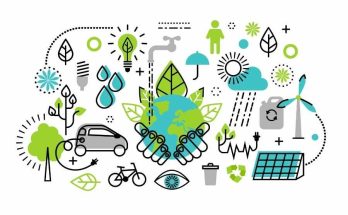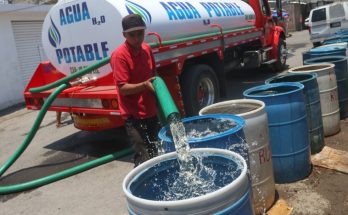By Alejandro Angulo
The director of the Division of Biological and Environmental Sciences, Dr. Javier E. García de Alba Verduzco, explained that degraded soils produce less food, but they also affect climate regulation and biodiversity loss. In order to produce one centimeter of firtile land, nature takes about 100 years. However, most farmers continue with traditional agricultural techniques which promote desertification. According to a study carried by CUCBA, most farmers abuse agrochemicals. Only five percent of farmers worldwide take care of the soil to avoid its desertification. Degraded soils have decreased productivity, and production prices have increased up five times since 2000, increasing the price of food.
The regional director of the National Commission for Arid Zones (CONAZA) in the Western Center, Eng. Jorge Luis García Rodríguez, pointed out that, “In Mexico, 175 million hectares, approximately 89 percent of the country, have processes of degradation of the land at different levels. Fifty-nine percent have specific land degradation, which means the loss of organic carbon and its productivity.” One of the most affected states is Jalisco, especially in Los Altos.
Extreme soil erosion, water scarcity, and rising temperatures make it more difficult to expand agricultural production. Unless we can reverse these trends, food prices will continue to rise, and hunger will continue to spread—eventually bringing down our social system. In a study by UNAM-Juriquilla regarding soils in the municipality of Querétaro, it was found that: «The growth of the population and of the industrial activity, the increase in the needs of services, and the appearance of new urban areas have impacted the intrinsic and natural characteristics of the soils of the municipality of Querétaro. This growth dynamic has resulted in the loss of agricultural and forestry land, in addition to exerting strong pressure and degradation on the physical, chemical, and biological properties of the soil.” Garcia adds the following: “Improper soil management has led to multiple problems with water, air, and plants, reflected in low agricultural productivity, soil erosion, and increased alkalinity.”
In a statement to a local print media, a researcher from the UNAM Geosciences Center stated that, «Querétaro has thin soils, with high levels of organic matter and they are fertile, but they have little volume of soil, so if intensified tillage or excessive cattle are brought in, an erosion process will occur.”
Another UNAM researcher stated, “One of the most threatened soil ecosystem services of the state is its role in recharging aquifers and in keeping bodies of water, dams, embankments, rivers and streams healthy. This is reflected in the advance of desertification, the loss of the health of the soil, water, and air, seriously accentuated in recent years.”
Soil security has been defined as maintenance or improvement of soil resources worldwide, so that they can provide enough food, fiber and raw materials, fresh water, and contribute to energy sustainability and climate stability, maintain biodiversity, and thus ensure environmental protection and ecosystem services. According to the FAO, the world has only six more decades of crops left on average if degradation of the soil continues.




